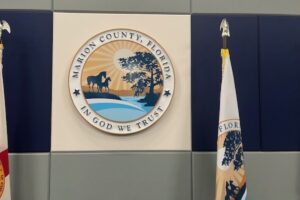Braver Angels has never been shy about engaging our nation’s most sensitive political issues. Last year, we held a public debate on the 2020 election exploring themes of voter fraud, voter suppression, and disagreements about the outcome. Recently, we hosted a podcast with a guest who claimed that the January 6th riots were incited by liberal activists working in collusion with the FBI.
After initially taking down the podcast for violating its terms on misinformation, YouTube reinstated the episode after reviewing it in the context of our larger mission. On this episode of the podcast, Ciaran O’Connor hosts David Blankenhorn, president of Braver Angels, and Jonathan Rauch, author of The Constitution of Knowledge, for a wide-ranging discussion on depolarization in the age of misinformation, bridge-building across the epistemological divide, and the Braver Angels approach to controversial content.
Check out Jonathan’s book: https://amzn.to/33wqcNu
Twitter: @braverangels, @jon_rauch, @blankenhorn3, @ciaranjoconnor





8 thoughts on “Depolarization in the Age of Misinformation | Jonathan Rauch with David Blankenhorn & Ciaran O’Connor”
Much appreciated the thoughtful video discussion of Mssrs. O’Connor, Blankenhorn, and Rauch, on boundaries and factuality. Reinforces my trust in Braver Angels and their/our mission. Thank you.
Thoughtful conversation between the three of you, nuanced and reflective. There is no simple solution. In my lifetime (in my 60s) I’ve not seen the kind of disagreement our society has on basic facts. I went back and watched the podcast in question with Peter Wood, (with whom I ardently disagree). But I must say it was good for me to hear his point of view, some of his grievances I had some sympathy for, but the narrative of the American story to which he subscribes seems highly biased and often simply false. Ciaran O’Connor, your calm and collected engagement with Mr Wood was exemplary. Thank you BraverAngels.
I watched the Peter Woods podcast and while I believe some of his statements to be false I would have gained much less from the program had those beliefs been edited out. The fact that these beliefs are held by an individual who had other insightful and well informed things to say was critical. It does little to advance our understanding if we edit speakers so that we can tell ourselves that only raving maniacs hold certain opinions – be those opinions of the right or left.
Thank you for the work you are doing and for this important conversation.
The issues discussed in this podcast are central to our nations healing and progress. It is unlikely and rare that we will change each other’s minds regarding certain polarizing “facts”. And we won’t get the most polarized parties to the table if we focus on whose information is factual or censure certain speech. I suggest we instead create a process whereby we define the information as seen by the polarizing sides as each others’ truths that we can agree to disagree on. Then we work to understand what each side is concerned about if their truth is their reality. Then look to find actions and policies that we could agree on that would address the concerns as well as the unintended consequences that could arise. In the case of the last Presidential election, I believe we’d get to some sort of agreement that our goal is for eligible voters to each have one vote that is accurately counted. Each side could present ideas that would help ensure this, unintended consequences for their idea etc. We need a process to move from debating facts to focusing on the real concerns and actions that could be taken.
I appreciate this effort toward integrity to the mission of Braver Angels that I, as a member, feel passionate about. As this podcast demonstrates, maintaining a mission is a process of engagement with ideas, methods, and with each other.
With regard to the question discussed in this podcast, whether to adjudicate facts in Braver Angels podcasts, to exclude those who do not seem to be making any attempt to hold opinions on the basis of facts, or neither, you show that it is certainly complicated.
What I would like to say on this question is that the right wing in America seems to be using misinformation (or to put it in David’s more generous terms, identification with tribal perspectives) for the purposes of gaining or retaining political power. To me, this means that the impact of platforming such views in Braver Angels podcasts is, to some extent, to unfairly disadvantage those on the left who tend to work hard to back up their opinions with facts, truth, and reality.
Thank you for sharing this Podcast which was clearly about a defining mission parameter. That you were transparent with this discussion into your thought process for designing your podcasts speaks to a commitment for engagement and understanding, which is how I think of Braver Angels. I learned a great deal from the discussion, and was prompted to view the Peter Woods podcast 5 minutes in as I was curious what had caused the stir. I found the Peter Woods podcast fascinating, and I understand how it brought about this conversation.
I have one question/comment that really surprises me. It appeared to me based on comments and discussion that John, Ciaran, and David would be considered “blue”. As a bipartisan organization, while discussing your organization’s business model and podcast content, why didn’t you have a red affiliated leader on the podcast?
I am really curious, though I happen to lean Blue.
Hi Amy,
I don’t know if it’s okay for me to speak for other people (and may they please correct me if I am wrong!), but I believe David and John lean Red (or have historically but are very nuanced and able to take an integrated view on a number of issues). My understanding is that at the leadership level, Braver Angels is 50-50 in terms of Red/Blue leanings.
Deborah
Pingback: Episode 94: Curious Conversations Across the Divide with Mónica Guzmán - How Do You Like It So Far?